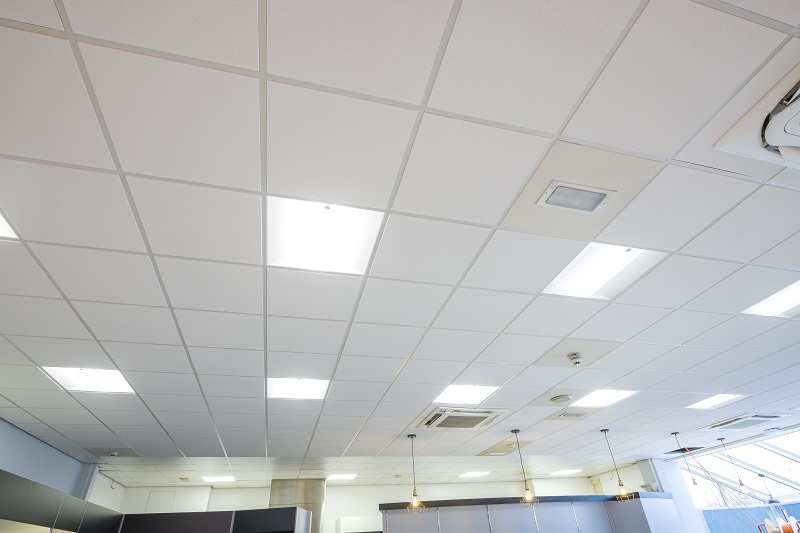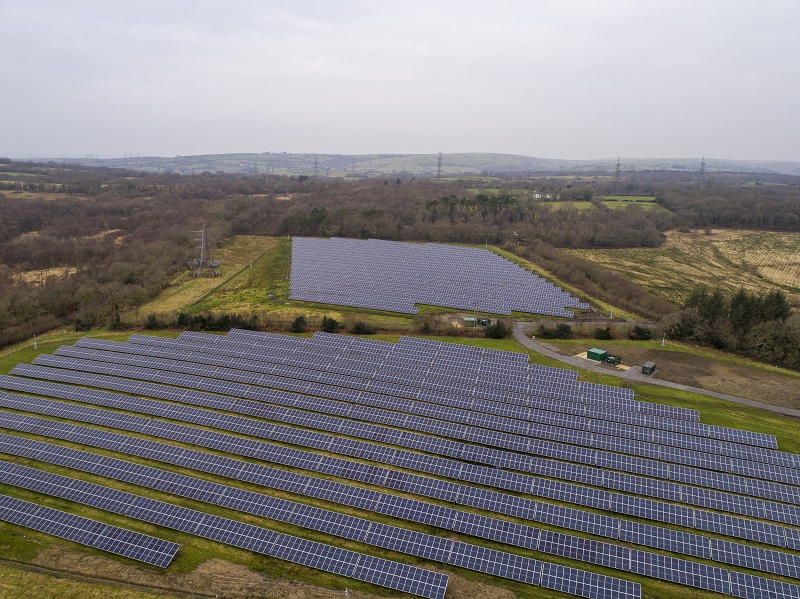It is estimated that healthcare organisations account for approximately 4% of the UK’s carbon emission.
And, while the UK Government has set a target of achieving net-zero carbon emissions by 2050, NHS Wales have set an even-more-ambitious goal of 2030.
Add in interim commitments, such as replacing all lighting with LED technology by 2025, and it is clear to see the scale of the challenge facing the Welsh healthcare sector.
To meet this challenge, Swansea Bay University Health Board (SBUHB) embarked on a multi-phase energy project designed to drastically reduce emissions, while protecting services from spiralling energy costs.
And the result was a project which revolutionised the way the board generates and consumes energy.
An investment-grade proposal
SBUHB received Salix funding and the project was delivered through the RE:FIT framework. This sees a preferred contractor appointed who then surveys the buildings across the client’s estate to identify the most-effective decarbonisation measures within the agreed budget.
Once this ‘investment grade proposal’ has been agreed, the service provider must deliver it to budget.
One very important part of the RE:FIT framework is that energy partners deliver energy performance contracts which guarantee core areas, such as the minimum carbon reduction and financial savings.
Phil Mottershead, Vital Energi’s project development director, explains: “Like most organisations, what health boards want is certainty, and energy performance contracts provide this by transferring the majority of risk from the health board to the energy partner.
“This puts the client in an extremely-strong position as they not only have budget certainty, which is crucial, but they have a clear picture of where they are on their decarbonisation journey, and how far they have left to go.
Maintaining services
“Another benefit is that this type of project will only attract experienced and trusted organisations who know how to deliver reliable, effective projects in a live, clinical environment, while maintaining essential services at all times.”
While the project was delivered in phases, a comprehensive masterplan had been put in place by SBUHB which ensured each phase complimented the others and added up to the best-possible overall solution.
Like most organisations, what health boards want is certainty, and energy performance contracts provide this by transferring the majority of risk from the health board to the energy partner
Phase one, for example, reduced electricity usage by over five million kilowatt hours, meaning the solar farm in phase two was able to deliver a higher percentage of Morriston Hospital’s needs and created the best-possible solution for the board’s net-zero ambitions.

The Welsh Government has committed to replacing all lighting with LED technology by 2025, and Swansea Bay is already well on the way to delivering this across its buildings

The Welsh Government has committed to replacing all lighting with LED technology by 2025, and Swansea Bay is already well on the way to delivering this across its buildings
In the beginning
Phase one of the project began in 2019 and focused on nine sites within SBUHB’s estate, with measures going online as they were completed.
This allowed quick wins to be installed rapidly and the board began saving carbon in a matter of weeks.
Scott Lutton, operations director for Vital Energi, said: “We encourage our clients to have short, medium, and long-term plans. This means they can install simple upgrades, such as draught proofing, insulation, and lighting upgrades, and begin saving carbon quickly.
“While this is being done, we can be facilitating the more-complex measures, such as solar PV and air source heat pumps, which may require planning permission and structural upgrades.”
To put the scale of phase one into perspective, works saw the upgrade of over 14,000 light fittings, 50 air handling units, and 738 rooftop solar panels across 10 sites. And, to make sure that the energy was used as efficiently as possible, Vital Energi also delivered a comprehensive Building Energy Managements System upgrade.
The overall effect of phase one displaced over five million kWh of electricity and 6.6 million kWh of gas, and resulted in 2,165 tonnes of carbon reduction per year.
An additional bonus was that it saved the health board over £800,000 in energy costs.
A 4MW solar farm at Brynwillach is the first dedicated installation to directly serve an NHS hospital, with 10,000 solar panels stretching across 14 hectares, which are connected to the hospital via a 3km private wire network
A UK first
Phase two saw the creation of the 4MW solar farm at Brynwillach, which is the first dedicated installation to directly serve an NHS hospital.
The project involved 10,000 solar panels stretching across 14 hectares, which are connected to the hospital via a 3km private wire network.
This solar farm has had a transformative effect on Morriston Hospital by reducing emissions by around 880 tonnes a year.
Phase three included additional lighting upgrades, rooftop solar PV, and heat pumps, which are an important part of the decarbonisation package as they further reduce the board’s reliance on fossil fuels and are fundamental to the Government’s strategy to decarbonise heat.
This third phase is estimated to reduce emissions by a further 310 tonnes of carbon per year.
The importance of monitoring and verification
The project was procured with an energy performance contract and it was essential to have a robust metering strategy which gave both the client and energy partner confidence.
As such, Vital Energi is using its Vital View building analytics software.
This is capable of measuring the performance of each individual asset, from fans through to light fittings, and not only enables Vital to produce detailed performance reports, but also identifies areas for improvement so the project can enter into a cycle of continuous improvement.
SBUHB have demonstrated that it is possible for NHS organisations to deliver decarbonisation rapidly, in an intelligent and controlled way, while maintaining patient services
Lutton said: “We keep clients informed throughout the year and work with them to optimise the system.
“As a consequence of COVID, SBUHB took steps to increase ventilation across its estate, which had a profound effect on energy usage.
“We were able to help the board understand how its energy infrastructure was impacted and work with them to optimise the system for the new demands.
“The importance of the monitoring and verification process cannot be overstated as it is fundamental to Vital’s underwriting of performance each and every year, for the duration of the contract.”
He added: “SBUHB have demonstrated that it is possible for NHS organisations to deliver decarbonisation rapidly, in an intelligent and controlled way, while maintaining patient services.
“And, in addition to improving energy efficiency, we were able to assist the health board in creating a better environment for patients and staff with improved lighting quality and more-intelligent comfort levels.
“By phasing their projects around the available funding, and ensuring that each phase fits into a larger masterplan, the board has reduced its building emissions by almost 4,000 tonnes, but to achieve this they have had to innovate along the way.”
